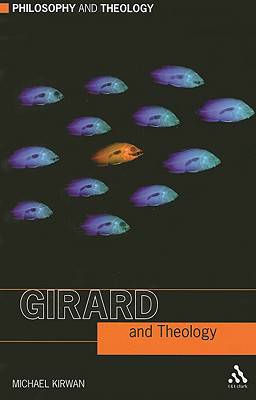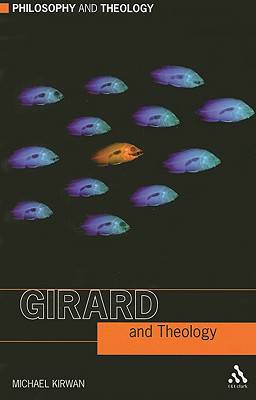
- Afhalen na 1 uur in een winkel met voorraad
- Gratis thuislevering in België vanaf € 30
- Ruim aanbod met 7 miljoen producten
- Afhalen na 1 uur in een winkel met voorraad
- Gratis thuislevering in België vanaf € 30
- Ruim aanbod met 7 miljoen producten
Omschrijving
The work of the French American theorist René Girard (b.1923) has been highly influential in a wide variety of intellectual disciplines. One enthusiastic reviewer in Le Monde suggested that the year 1972 (when La Violence et le Sacré was published) should be marked with an asterisk in the annals of the humanities, including literature, theology and religious studies. There is a paradox here insofar as Girard is, strictly speaking, neither a philosopher nor a theologian. He was trained as a historian, but spent most of his academic career as a teacher of French literature. It is out of his study of great European literature (notably Proust, Dostoyevsky and Shakespeare) that what he calls 'mimetic theory' evolved.
Mimetic theory is an account of how religion, culture and violence are interrelated. Its three principal parts consist of: an assertion of the 'mimetic' (i.e. imitated or derivative nature of desire); the function of 'scapegoating' as a means of achieving and maintaining social cohesion; the gospel revelation as the means by which these truths of the human condition are made known to us. A general introduction to his work will comprise an exposition of these three parts or phases in Girard's thinking. In Girard and Theology, Michael Kirwan looks at these ideas and their relevance to theology as well as their reception in the development of 'dramatic theology' and new theological concepts of atonement and sacrifice.Specificaties
Betrokkenen
- Auteur(s):
- Uitgeverij:
Inhoud
- Aantal bladzijden:
- 176
- Taal:
- Engels
- Reeks:
Eigenschappen
- Productcode (EAN):
- 9780567032270
- Verschijningsdatum:
- 12/04/2009
- Uitvoering:
- Paperback
- Formaat:
- Trade paperback (VS)
- Afmetingen:
- 137 mm x 211 mm
- Gewicht:
- 249 g

Alleen bij Standaard Boekhandel
Beoordelingen
We publiceren alleen reviews die voldoen aan de voorwaarden voor reviews. Bekijk onze voorwaarden voor reviews.







